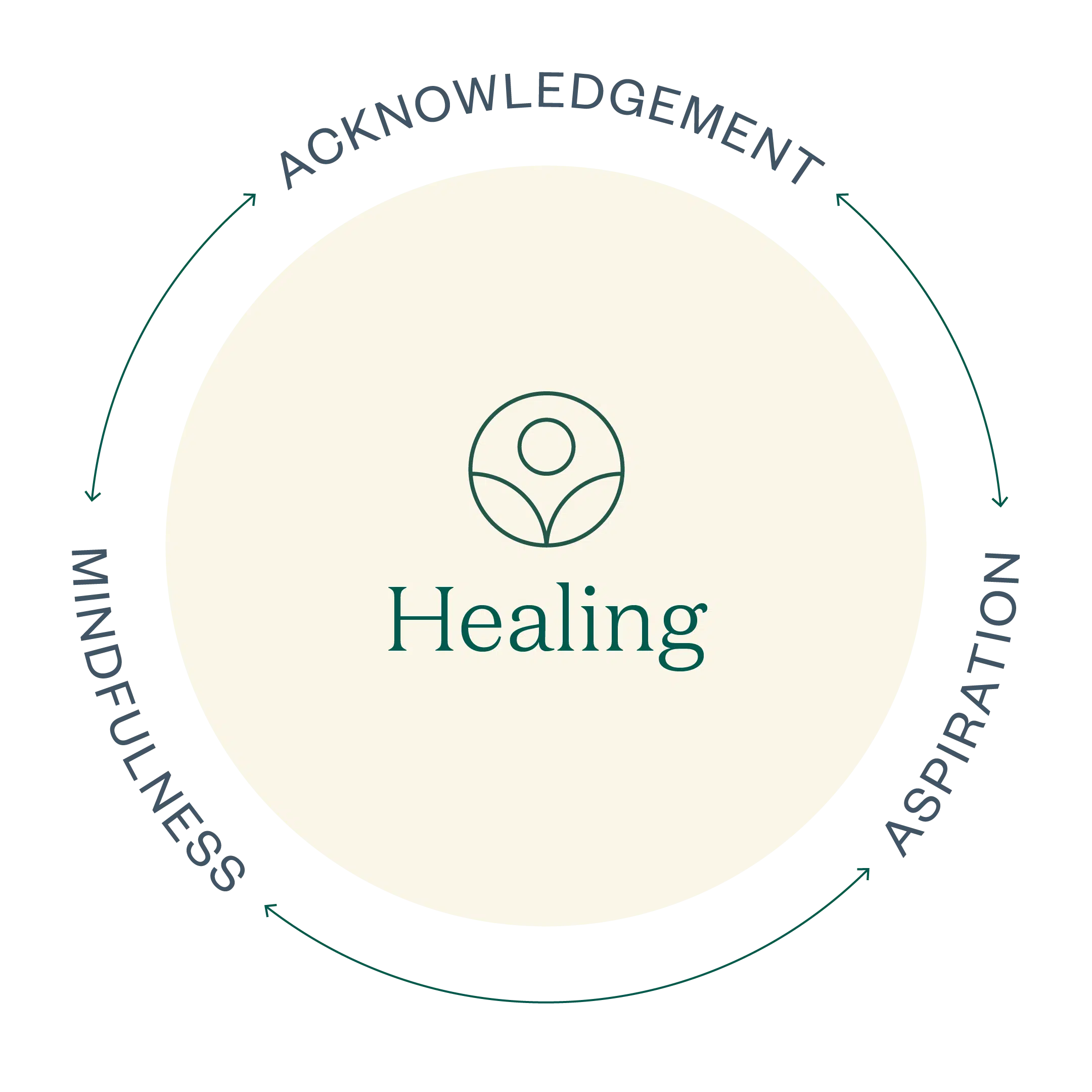Saprea > Online Healing Resources > Our Approach >Aspiration and Healing From Sexual Abuse
In programs that offer advocacy and support for those who have endured sexual abuse, it’s common practice to use the word “survivor” instead of “victim” when referring to the individuals we serve. It may seem like an unimportant distinction to some, but for us it is all about empowerment. Certainly someone who has endured sexual abuse has been victimized, but they need not retain the identity of a victim. A victim is someone who has been acted upon; a survivor is someone who acts.
Some survivors of child sexual abuse may feel that’s all they are doing; they are just surviving. But it’s no small thing to survive an intense trauma like child sexual abuse. The brain and body have to work overtime to attempt to cope with that kind of trauma, and it’s important to acknowledge that survival was, at one point, the brain’s best defense. But if you are a survivor of child sexual abuse (and we use the word “survivor” with awe and respect for the work you’ve been doing to keep moving forward), you can be one who acts. This is where the healing practice of Aspiration comes into play.
It is a brave and beautiful act to aspire to feel better tomorrow than you feel today, to acknowledge the wounds of the past and to mindfully do what you can in this moment to work towards the future you want. With Aspiration, you are tending to your needs in the present because you believe (or want to believe) that the time and energy you invest in your well-being will impact your future healing.
Aspiration
Directing Your Thoughts Toward Healing from Child Sexual Abuse
Aspiration requires a combination of self-compassion and determination. Self-compassion plays an important role because it reminds you that change takes time, that healing from trauma requires flexibility, adaptability, and patience. It can be daunting to understand that no one can do this work for you; yet you are the one person who best knows where you’ve been, where you are now, and where you want to be. Your determination to take one step at a time on your healing journey can inspire you to keep moving forward. Your self-compassion to be patient during times when you get lost or trip and fall can also inspire you to keep moving forward.
Self-compassion and determination are often demonstrated in our thought patterns. Just as the brain had a powerful role in responding to trauma, it also has a powerful role in healing from trauma. If, for example, you nurture thoughts that healing is possible, that you are capable of making changes and growing, you are priming your mind to be successful—and to notice those successes. If, however, you ruminate on your weaknesses or struggles, you are more likely to notice when your progress isn’t what you want it to be.
As you work on directing your thoughts toward healing, it may be helpful to ask yourself these questions:
- What are my strengths?
- What goals do I have for today? Are these goals realistic for the time I have and where I’m at today?
- What are my long-term goals? In what timeframe do I hope to accomplish them? What would I need to put into place to achieve these goals?
- How might my strengths help me achieve my short-term and long-term goals?
- How can I keep myself motivated (determination)?
- How can I be flexible with myself (self-compassion)?
These questions will help you to complete a self-inventory, identifying strengths that you have and areas where those strengths can lead you forward. Be realistic with your timelines and celebrate the progress you make. Each little victory is a step closer to where you want to be.
Sometimes survivors feel as though they have no strengths, or that there is nothing about themselves that they like. If you find yourself in this situation, you may be experiencing shame, which distorts the way we see ourselves. Learn how shame and sexual abuse often go hand-in-hand, and how shame impacts the body and mind. As always, we encourage you to work with a mental health professional in addressing these challenges. (That, in and of itself, is Aspiration.)
Directing Your Actions Toward Healing from Child Sexual Abuse
As you continually direct your thoughts toward healing, it’s also important to put action behind the thought. Planning an excursion is only half the fun; actually going on the trip that you’ve planned is a key part of the experience. Similarly, the thought and intention that you put into identifying your goals and strengths will serve you best when followed with action.
Directing your actions toward healing can take a lot of different forms, and this will be where you’ll really get to put self-compassion into practice. You may have identified something that you aspire to start doing, or something that you aspire to stop doing. You’ll want to be realistic about what progress you can make in a specified period of time, trying to find the optimum blend of pushing yourself and giving yourself space and time to succeed.
This may require some adaptability; you may find that you plan for one thing but need to adjust because you realize you can do more, or because you need to scale back. Either way, be compassionate with yourself. It may help to remind yourself that you’ve had years—maybe even decades—of thinking, feeling, and coping in a specific way. It will also take time to train your mind and body to respond in new ways; it is very doable, just be patient with yourself.
Aspiration could look something like this:
- Healing Thoughts: “I am capable of learning new ways to manage symptoms of post-traumatic stress. I am healthy and strong, and my mind and heart are ready to begin healing.”
- Healing Actions: “I will keep a daily journal where I track my mood. This will help me identify the triggers that throw me off.”
- Healing Thoughts: “As I identify triggers, I am empowered to respond in ways to reduce those triggers. Reflection and observation will assist me in healing.”
- Healing Actions: “I have identified that one of my triggers is when I feel that I am not being heard, or that my concerns aren’t validated. I am going to review techniques for practicing assertive communication so that I can feel safe and validated in the relationships that matter the most to me.”
Aspiration Is Part of the Cycle of Healing
Ancient mariners used the stars in the night sky to navigate their course. Because the stars are constant, they proved to be a timeless and reliable way to safely arrive at a destination. With this in mind, imagine you are sailing a vast ocean on a dark night. The waves are tossing your ship, the wind is blowing you in another direction, and the current is pushing against you and slowing your progress. But as you look to the guiding constellations in the sky, you can see where you need to go. You find that fixing your sights on a constant point helps you to steer your ship and provides a way for you to course correct when you drift from where you want to be.
Much like the stars, Aspiration is a navigational tool to keep your efforts in sight, and to help you stay on course. And while Aspiration is a strategy for designing a future that brings you more joy, the practice of aspiring very much happens in the present. There are things you can do—today—to continue your journey of healing. As you get to know yourself better through this healing process—acknowledging where you’ve been and where you are, mindfully choosing to be in the present moment, and identifying how you can think and act in this moment to create a more rewarding future for yourself—your journey toward healing progresses and you can become your own guiding star.

How Can I Practice Aspiration?

Develop Aspirational Thinking

Movement
